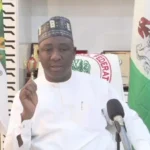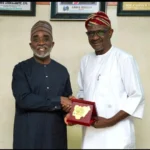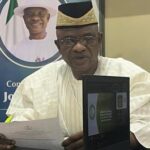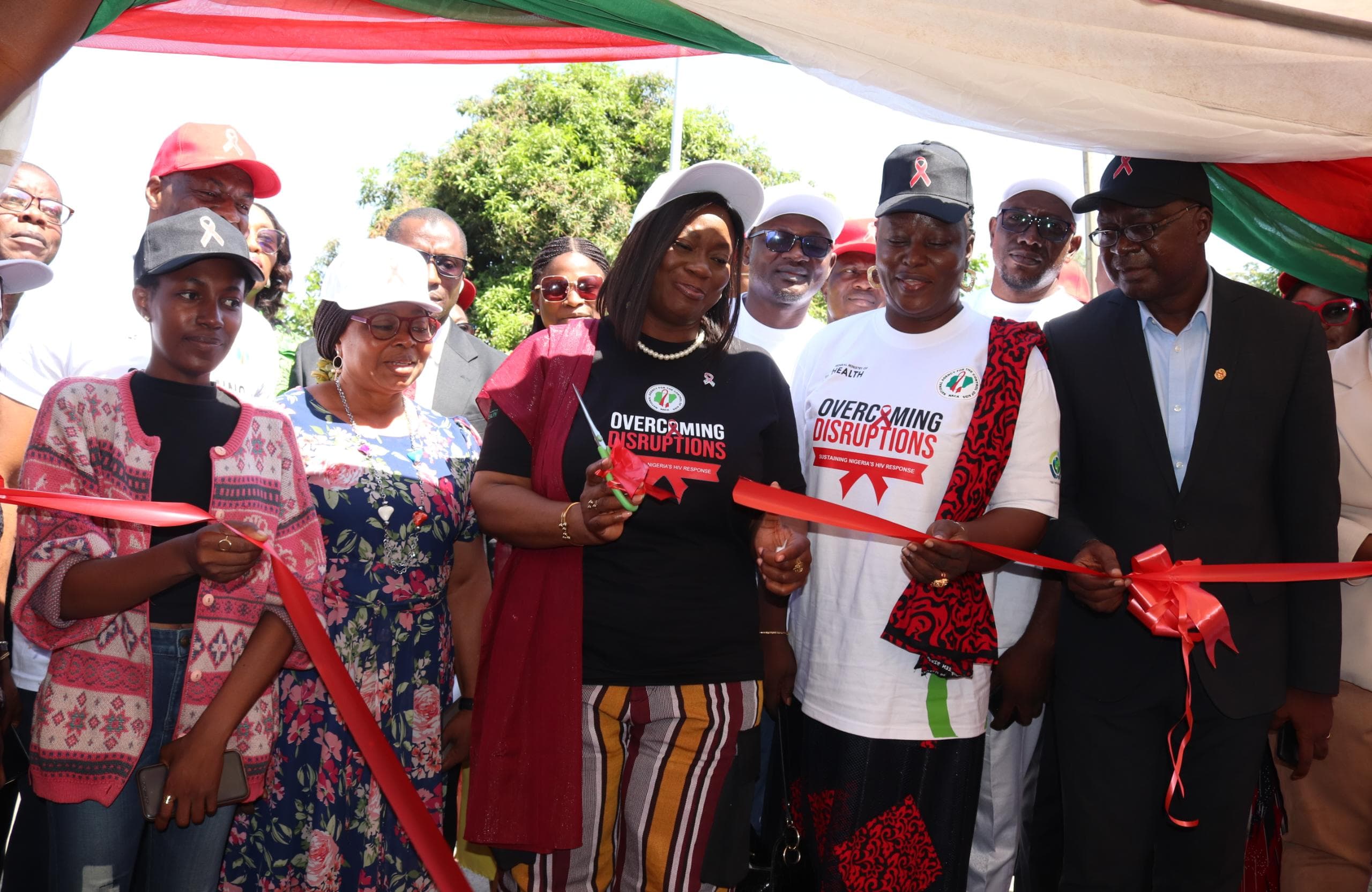By Justina Auta
Dr Temitope Ilori, Director-General, National Agency for the Control of AIDS (NACA), says significant progress has been recorded as Nigeria is on track to meet the 2030 target in ending the epidemic as a public health by 2030.
Ilori stated this at a news conference organised ahead of the commemoration of World AIDS Day (WAD), themed “Overcoming Disruption: Sustaining Nigeria’s HIV Response” in Abuja.
The WAD is observed every Dec. 1 to raise awareness about HIV/AIDS, promote global solidarity, review progress in combating the epidemic and recommit towards eliminating HIV.
She revealed that Nigeria has met two of the three 2030 global HIV targets, indicating significant progress in the country’s response to the epidemic and its efforts to improve HIV prevention, testing, and treatment.
The Joint United Nations Programme on HIV and AIDS (UNAIDS) 95-95-95 targets aim to ensure that by 2030, 95 per cent of all people living with HIV know their HIV status.
Also, 95 per cent of all people diagnosed with HIV receive sustained antiretroviral therapy, and 95 per cent of all people receiving antiretroviral therapy achieve viral suppression.
According to Ilori, Nigeria remains firmly on track to end AIDS as a public health threat by 2030 and will not stop until that goal is achieved.
“Over the past year, Nigeria has continued to record important achievements in its HIV response.
“We have maintained an impressive 87–98–95 performance toward the global 95–95–95 targets, demonstrating significant progress in diagnosis, treatment coverage, and viral suppression across the country.
“87 per cent of people living with HIV in Nigeria know their status; 98 per cent of those who know their status are on life-saving treatment; while 95 per cent of those on treatment have achieved viral suppression—meaning they cannot transmit HIV.”
She said that Nigeria in the last decade has recorded a 46 per cent decline in new HIV infections and more Nigerians living with HIV are enrolled and retained in care than ever before.
She, however, noted that even though state-led efforts in the prevention of mother-to-child transmission have strengthened early infant diagnosis and paediatric treatment, they still require focused attention.
The D-G noted that despite the unprecedented disruptions, including a global pandemic, economic uncertainty, fluctuating donor support, and shifts in the global health financing landscape, Nigeria’s HIV response has not faltered.
“In 2024 alone, 204,201 individuals from key populations were actively receiving antiretroviral therapy, with strong viral suppression rates among those retained in care.
“Domestic resource mobilisation efforts are deepening, with several states increasing budget allocations and strengthening HIV Trust Funds to enhance sustainability and national ownership.
“When global funding uncertainties threatened to disrupt essential services, the Federal Government stepped in decisively, injecting $200million to ensure the uninterrupted delivery of HIV prevention, testing, and treatment services, as well as allied infections,” she said.
According to her, despite progress, serious challenges persist, including ongoing stigma, discrimination, dependence on external funding, and limited access to services in hard-to-reach areas.
She emphasised the need for increased domestic financing, stronger multisectoral coordination and a continued commitment to fighting stigma and discrimination, ensuring safe and inclusive environments for all.
Mr Gabriel Undelikwo, representative of UNAIDS, commended Nigeria’s commitment to strengthening national systems, securing local financing, and ensuring access to treatment.
Undelikwo reaffirmed UNAIDS’ support to Nigeria and stressed that achieving the goal of ending AIDS by 2030 will require sustained leadership, collaboration, and community empowerment.
“We need to sustain the national leadership partnership, maintain integration, and strengthen collaboration and community empowerment because we believe that together we are overcoming the disruption and sustaining the national response to HIV,” he said.
Dr Jay Samuels, Deputy Chief Executive Officer of Programmes at APIN Public Health Initiatives, reaffirmed the organisation’s commitment to helping end the HIV epidemic in the country.
“As the foremost indigenous NGO providing treatment for over 20 per cent of Nigeria’s Persons Living with HIV/AIDS, we restate our commitment to working with all relevant stakeholders to close the treatment gaps and ultimately end the epidemic.
“Even in the face of uncertainties and changes in the global funding landscape, we are poised to lead the charge towards domestic resource mobilisation,” he said.
Mr Omoniyi Amos, World Health Organisation, stressed the need to transform HIV response into sustainable, locally-led systems, strengthen the health sector and tackle stigmatisation, misinformation and discrimination.
Dr Martin Edun, Programme Manager, Non-communicable Diseases/Programme Integration, Institute of Human Virology, reaffirmed their commitment to advancing scientific innovation, promoting community-driven solutions and strengthening health systems to sustain HIV response. (NAN)(www.nannews.ng)
Edited by Yakubu Uba












